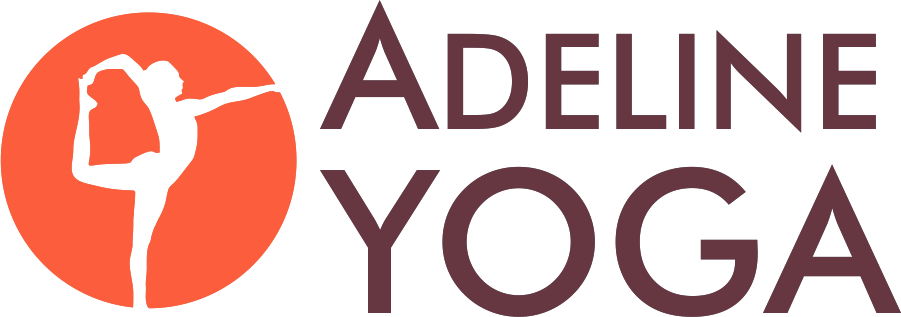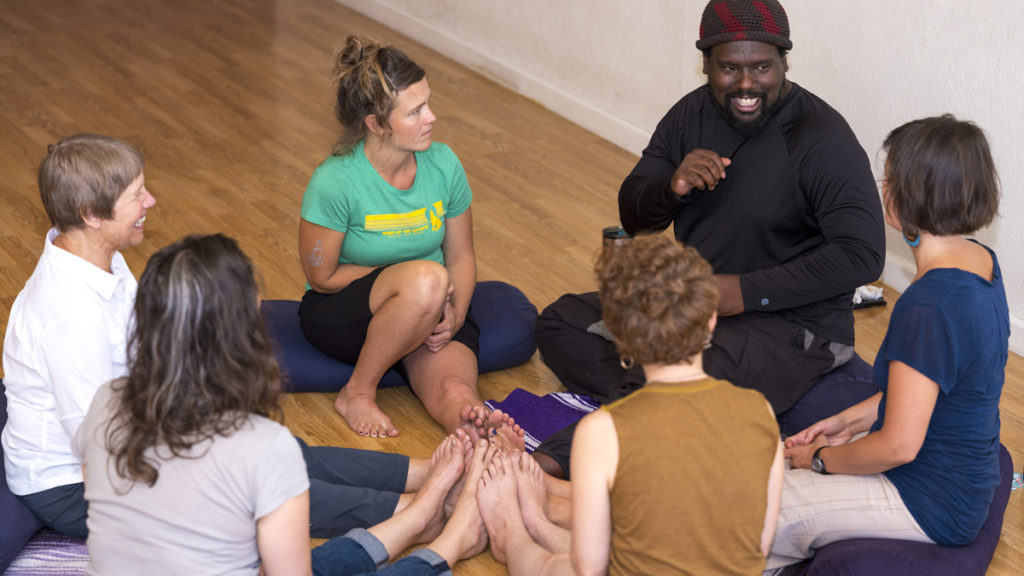
In 2013, Jennie Pearl, a yoga teacher and body worker, was at home in her Oakland apartment healing from a concussion. Outside, activists were protesting a jury’s failure to convict George Zimmerman for the murder of Trayvon Martin. Though she was not meant to be on a computer, Jennie found herself drawn to her laptop, eager to hear what people had to say about what was taking place just outside her window. But what she found in her social media feed disturbed her. While Black Lives Matter was being born in response to an epidemic of police violence against people of color, Jennie found that her online community was going about business per usual. “It was all just pictures of white people doing yoga,” she remembers. “I was starting to realize the extent of the pain and suffering that people of color experience all the time. It was starting to hit me, but it wasn’t hitting my community.”
This realization motivated Jennie to learn more about the systems that create so much pain and suffering; she attended every event and training she could afford in the hope of first educating herself. She remembers this as a painful but vital process with many different phases. Throughout, she drew on the skills she had developed as a yoga practitioner. “[Those of us who practice yoga] have the skills to turn inward, and we have the skills to sit with discomfort,” she says. “We are totally equipped to do the work if we want to do it.”
Not only are yoga practitioners equipped to do the work, Jennie points out, but it is critical if they wish for the community to move beyond what’s become known as spiritual bypassing. “Too often, folks in yogaland are quick to dismiss real suffering with cute sayings about love and unity and manifesting better realities,” Jennie explains. In other words, besides being tone deaf, we’re guilty of thinking we get a free pass on doing the difficult work of dismantling racism because we’re engaged in a spiritual practice.
For many folks, the question remains where to begin. If you want to learn to play the guitar, you can sign up for lessons. If you have a goal of reading more books, you might take a trip to the public library. But what if you want to unlearn your own implicit biases and begin to understand the world in a new light?
Since January 2018, Jennie and Aaron Johnson, her colleague at Holistic Resistance and a self-described teacher of closeness, have co-facilitated six talks for Adeline Yoga’s teachers and team leaders. The discussions have focused on the concept of being close to blackness. With these talks, they hope to help white-identified folks reflect and to discover personal, community, and cultural barriers to closeness, particularly as they affect our yoga communities.
“White supremacy is extremely effective at isolating everybody,” Aaron explains. “The more determined we are to dismantle isolation, the more we open up to possibilities of getting close to blackness.” A question he often asks in workshops is, “Have you held the hand of a black man for three or more minutes with the intention of connection?” He’s asking people to slow down. “There are certain things we cannot get from a book,” he says. “There are certain things we cannot get from a documentary. As important as those things are, white people can not supplement or replace the skillfulness, the learning, and the power of actual connection.”
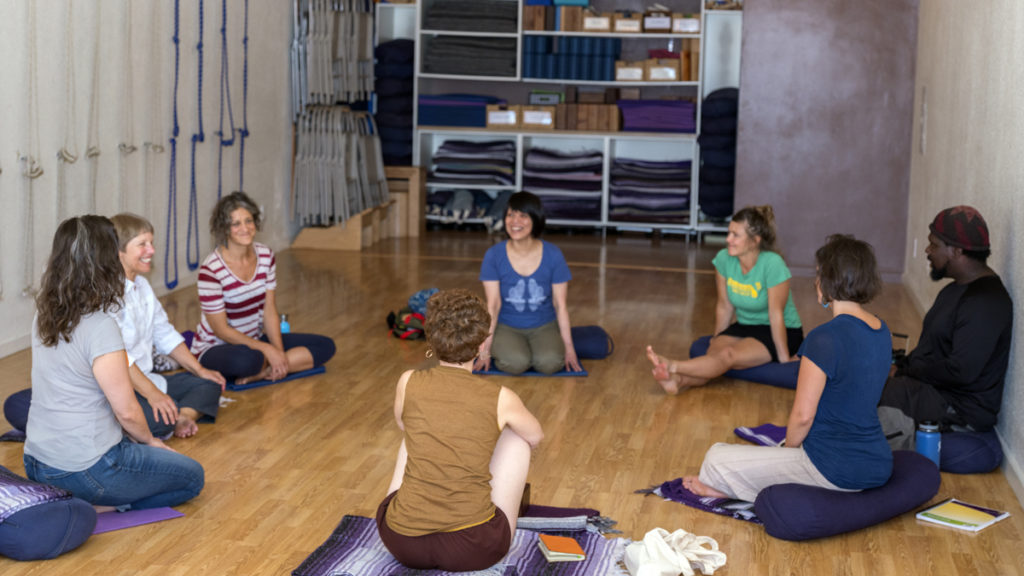
“There’s a lot talk around ‘Resistance’ these days,” he continues. “The question is, how much of that resistance brings us closer and how much of it further isolates us? When you design your life as a white person with the intention of making space for and considering people of the global majority/black people, that is a true act of resistance.”
Aaron is committed to helping other people resist this separation not just in words, but in practice: “I have concluded that White Supremacy has had a negative and oppressive impact on every aspect of my life. So, I would like to resist white supremacy with every aspect of my life. I want to resist white supremacy with my whole self.”
Adeline yoga teacher Anneke Faas has been attending Aaron and Jennie’s talks since January. “The work around getting close to blackness has brought me not only closer to myself but allowed me greater access to those in my world who have suffered unnecessarily based on their race,” she reflects. “None of us have control over [the circumstances] we are born into. However, this can make for easy living, or difficult living depending on where you are. Here in the United States, we are caught in a vicious cycle as white people of denying racism and the hundreds of years of suffering brought onto people of color. Holding that close, getting really close to that reality and allowing myself to sit in their shoes has broadened my capacity to open up to the harsh realities and my part in it.”
If you haven’t yet attended one of these talks, it’s not too late to begin! “The work has only begun,” Anneke explains. “This is with yoga, as well. The moment there is a breakthrough, the door opens to many other possibilities.”
“If you have any bit of interest in engaging in this dialogue, please come,” Jennie encourages. “Meet us. Get to know us.” Ultimately, these talks, she notes, are about forming new connections. “If you want to embark on this conversation from a heart-centered place and connect with others who doing the same, just show up.”
The upcoming Being Close to Blackness talk is open to all Adeline students and community members. It is from Sunday, October 21 from 7:00-8:30pm. You can register here. The focus of this workshop is for white-identified people to work on their material, but all are welcome. Payment for the workshop is accepted on a sliding scale, from $10-25 dollars, and everyone is encouraged to attend to attend regardless of ability to pay. We hope to see you there as we continue on this vital journey together.
. . .
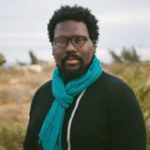
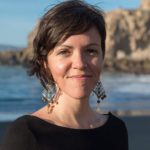 Read more about Aaron and Jennie’s work with Holistic Resistance here!
Read more about Aaron and Jennie’s work with Holistic Resistance here!
